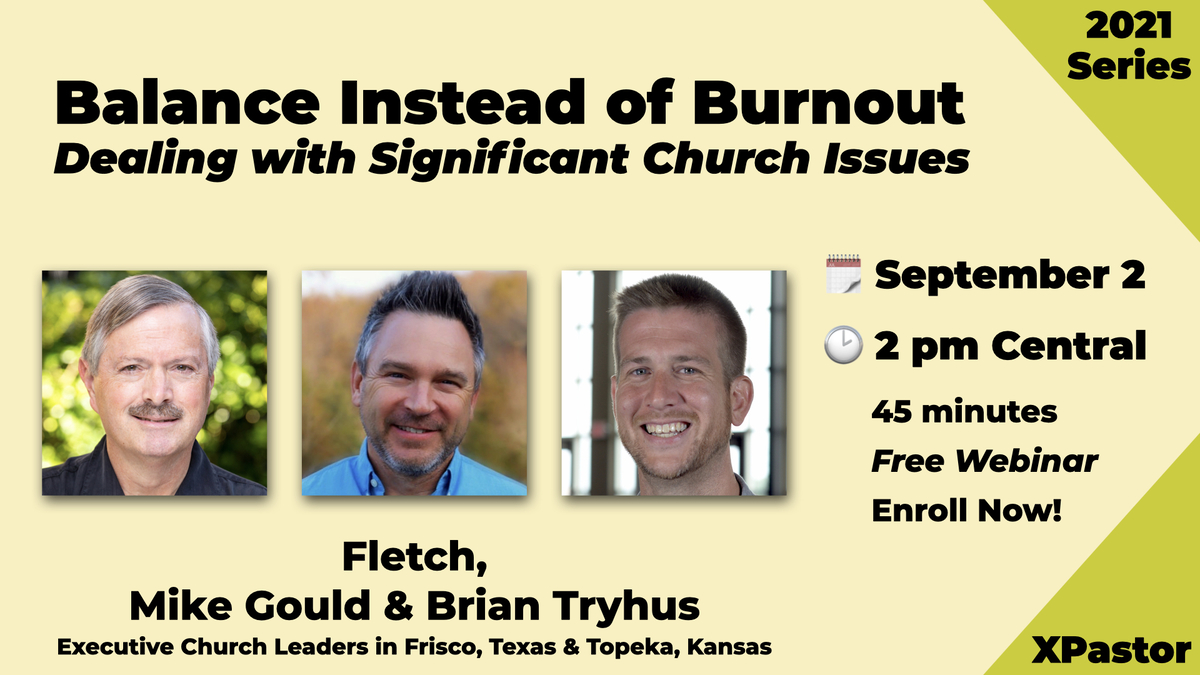Burnout is a major problem for many non-profit organizations, and it seems to be growing. Are volunteers just getting more lazy and irresponsible, or is there really something to burnout? Everyone gets tired once in awhile from hard work, daily stresses and strains, and plain getting older, but a little rest is all that’s generally needed to recharge our battery. Burnout is a different phenomenon altogether, however. It makes us feel tired and lethargic, even after prolonged rest.
More psychological/emotional than physical, burnout results from prolonged stress, overextension, and hurriedness. The nervous system gets stretched until it loses its resiliency and renewal capacity. The burnout victim finds it more and more difficult to snap back from hard work, to “get up” for challenges, and to adequately rest. Then the “blahs” set in (the so what? feeling) even in the absence of hard work and stress.
That’s when you know you’re suffering from burnout. You’re tired all the time even though you haven’t done much of anything. You feel like withdrawing, even from activities previously relished. Before long you start to feel worthless.
The Road to Burnout
- Over-commitment (always in motion)
- Inadequate breaks and rest (continuous client involvement)
- Idealistic standards
- Constant low-grade stress (occasionally interrupted by crisis!)
- Lack of help and assistance
- Chronic fatigue from pushing oneself (“hitting the wall”)
- Strong sense of responsibility, even when others “dropped the ball”
- Guilty feelings about missing church events/activities
- Heavy job and family responsibilities/expectations
- Inability (or strong reluctance) to say no
Burnout Reality Orientation
Burnout happens to nice guys—to the dedicated, loyal, idealist staff member or volunteer who really wants to make a difference. That’s the problem: this all-out commitment drives some to take on too much, too soon, too often. They may be overlooking a “skyscraper” of family or personal life responsibilities. Constant challenge and activity carries stress in its wake—”psyching up” for program activities, putting out brush fires, coping with diverse personalities, making do with scarce resources. And don’t forget the strings attached to becoming a program leader: networking; showing up early and leaving late; maintaining professional and compassionate behavior at all times; attending (seemingly endless) meetings, etc.
Sometimes staff get a bit out of touch with grass roots volunteer busyness. They’re so busy (and under-appreciated) themselves, chronic over-commitment becomes the rule rather than the exception. Many potential volunteers on the sidelines conveniently assume that “everything is running smoothly, so our help isn’t really needed.” Others, not so naïve, know the tremendous sacrifice required with client involvement and want no part of it.
A Strategy for Avoiding Burnout
It’s easier to avoid burnout in the first place than it is to overcome it. Here are a handful of do-able strategies for escaping its clutches:
- Rest, relax, recreate, renew. It’s the only avenue for sustaining us for the long haul.
- Give something up before taking on a new commitment or responsibility. Don’t keep “adding floors” onto your already towering skyscraper of activities.
- Learn to say no and to set up reasonable boundaries around your involvement. Specify the help you’ll need and the constraints on your time.
- Set priorities and consult with your family. Service work occupies an essential role in our lives but must never take priority over family. Look for ways to team up with your spouse in activities. Be willing to occasionally say no to low priority activities when they conflict with quality family time.
- Get away from it all on a regular basis through hobbies, recreation, short “sabbaticals,” and sometimes just being a couch potato.
- Listen to your body’s stress warning signals, such as headaches, backaches, dizziness, insomnia, and unexplainable fatigue.
- Cut out the hurry and worry. Stress is the natural byproduct of trying to stuff ten pounds of potatoes into a five pound bag. Do only what you reasonably can in the time available and with the resources available.
- Keep those closest to you informed of your changing commitments and priorities. Stay away from guilt trips.










